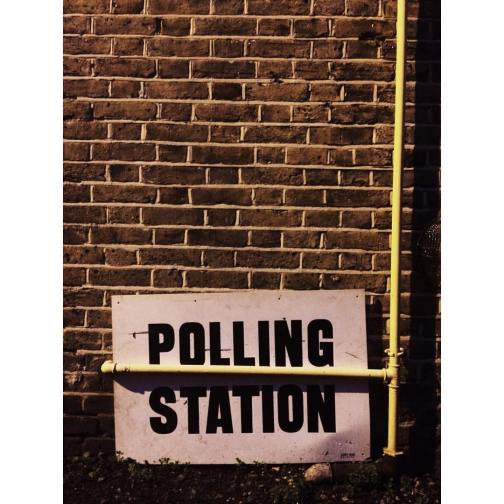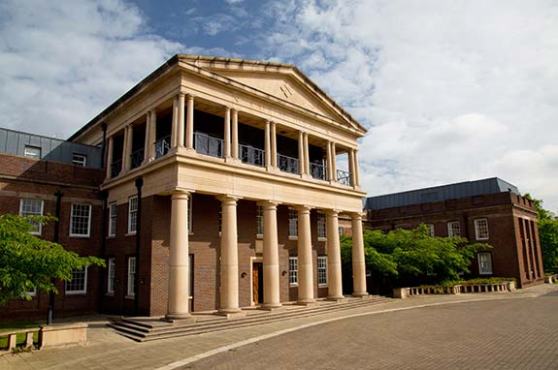Whether you’re a fresher new to the Chester scene, or are returning to Chester in September but will be studying at a different campus, check out our CSL campus guide which breaks down the various campuses belonging to the University of Chester.
Module timetables will be released during Freshers’ Week (26th – 30th September 2016) and you can access which campus you are on from your portal page.
Parkgate Road Campus (Main)
 Photo.www.edcon.com.tr
Photo.www.edcon.com.tr
Parkgate Road is Chester University’s main campus. It hosts the majority of students studying at the university, and caters for a variety of courses, as well as featuring a host of facilities.
As this campus incorporates both teaching and student living, there is a mixture of learning and leisure resources. It has an array of self-catered and full board accommodation with a dining hall for students with a meal , plus a small launderette located next to the library.
The campus is separated into two main areas, with sport playing fields in each section along with cafes, catering outlets and lecture buildings . It also has a bookshop, a small Santander bank, fitness suite with a swimming pool, as well as a chapel and faith space. Along with all of the above, Chester has its own Student Union (SU) bar and shop, with the SU hosting its own student night every Friday.
The Seaborne Library is the biggest student hub on main campus. Recently renovated in 2015, it has been extended to feature more study areas and now includes a small Costa Coffee on the ground floor. There is a 24-hour access area, which allows you to use the mac room and the lower portion of the library, however, remember this can only be accessed with your student card.
To get more information on the campus and its amenities why not check out our blog Parkgate Road- get your study on.
If you are looking for private accommodation near Parkgate Road, we have a variety of properties left. For example 3 Cheyney Road is directly opposite the main campus, you could be sat in your lecture theatre 5 minutes after leaving your house. If you are someone who likes being close to the all the action then this property is perfect.
Kingsway Campus
Kingsway is the university’s arts and media campus, featuring the following courses: art and design, drama, media, and music. It has a large canteen at the rear of the building with the option for books to be ordered from Warrington (there’s no library on site).
It’s a 20-minute walk from Parkgate Road but there is private accommodation nearby if you wish to live closer to it. 12 Brookside Terrace is only a 10-minute walk from Kingsway. Perfect if you are based on Kingsway campus for the foreseeable, or if you are a combined student, as main campus is only 10 minutes away.
Kingsway may be further from main campus, but it does have brilliant bus service links to Chester city centre and is only a 15-minute walk to the train station.You can use the Upton Service, number 53 to take you from the Chester city centre to Kingsway and vice versa.
For more information on this campus and its courses, check out the university’s Kingsway information page.
Thornton Science Park
The Thornton Science Park is renowned for being a major research and innovation hub in the North West. Thornton offers courses including science (natural and computer), engineering, and mathematics.
Based near Ellesmere Port, it’s approximately 20-minutes drive away from Parkgate Road, however, there is a direct coach that leaves main campus throughout the day. You’ll be able to see the timetable, which becomes available at the start of term.
This campus has purpose-built laboratories specific to each course, kitted with up to date computer suites, programming equipment, and a library – everything needed to support students’ independent learning.
Finding accommodation close to the pick-up point on main campus in this area will make those early starts a little easier. 62 Garden Lane is a 5-minute walk away from main campus, and is situated in the popular student area of the Garden Quarter, close to shops and takeaways.
Riverside Campus
Riverside Campus is home to the Faculty of Education and Children’s Services, and Health and Social Care. Situated by the River Dee, its a 20-minute walk from the main campus.
It houses the library collections for Education and Children’s Services, as well as Health and Social Care students. There are several IT laboratories for ‘open access’ and teaching use. All of the teaching spaces are equipped with high-grade audiovisual technology and provide an excellent learning experience.
In addition, it features its own cafe and coffee shop and a has a great ‘student space’ for group work and individual study.
As this campus is located on the outskirts of the city centre, it’s a slightly further walk away from the main student hub. However, 18 Garden Lane is located closer to the city centre and is only a 15-minute walk to Riverside, whilst being a 10-minute walk to main campus and shops.
Queen’s Park Campus
Queen’s Park Business School is the designated campus for business and events management. Located in Handbridge, it’s a 5-minute walk from the city centre and a 30-minute walk from Parkgate Road.
The campus provides a great learning environment for its students, with events hosted annually on the campus including some prestigious speakers, welcoming public and private sector partners.
In terms of facilities, Queen’s Park has its own dedicated business library, with student study spaces and IT suites, as well as a canteen and even a Starbucks on the ground floor.
This campus is located on the South side of the River Dee. It’s accessible by walking through the Grovesnor Park and continuing over the Queen’s Park Bridge. Due to the campus’s location, accommodation near the city centre would be best for those looking for a shorter walk. Northgate Point offers modern self-contained and excellent specification studios for especially for students. Being so close to the city centre, these halls are only a 15-minute walk to Queens Park.
University Centre Shrewsbury
The University teamed up with Shropshire County Council to build an undergraduate/ postgraduate facility in 2014, aimed at students who wish to further their studies whilst simultaneously offering a rounded university experience.
The courses and wider opportunities on offer at University Centre Shrewsbury are designed to ensure that students can develop skills in their chosen field, aiming to produce highly employable graduates. If this is something that interests you, check out their undergraduate and postgraduate courses.
If you are a first year or a returning student looking for a let you can love near any of the Chester-based campuses, check out our properties page and see what we have available for August/ September 2016.











 Photo.www.edcon.com.tr
Photo.www.edcon.com.tr Photo:
Photo:  Photo:
Photo:  Photo:
Photo:  Photo:
Photo:  Photo:
Photo: 







